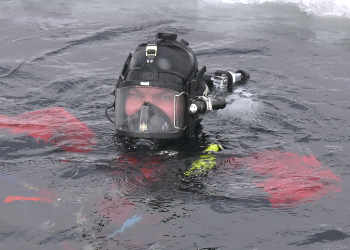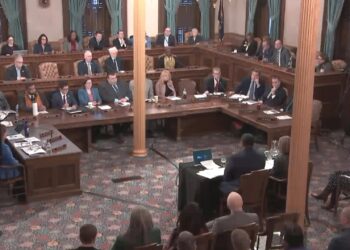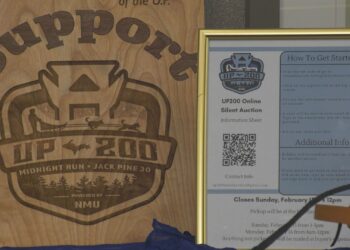LANSING, Mich. (WZMQ) – The United Auto Workers strike continues, and before long, the impacts of the strike will be felt not just by GM, Ford, and Stellantis, but throughout the supply chain.
The UAW is in its fourth day of striking, stalling production at three different plants across the Midwest. It’s estimated somewhere between 13,000 and 146,000 workers at The Big Three companies are on strike.
Professor at Michigan State University’s College of Business in the supply chain department, Amy Broglin-Peterson, said with so many workers on strike pay or worried about their jobs, the economic effects will be felt soon.
“It’s really impactful when the big three are shut down like this,” Broglin-Peterson said. “What it means is essentially, especially locally, a slowing down of all kinds of economic activity.”
Broglin-Peterson said that with the timing of the strike, Ford, GM, and Stellantis, were unprepared for the fallout of a strike, meaning the slowdown in manufacturing and assembly plans would be felt sooner rather than later. She said some of the models are still being manufactured, which should be good for continuity of supply and financial flow for The Big Three. But, soon, financial disruptions like lay-offs, quality issues with few people to facilitate examinations, and other cost-saving measures will start to be seen.
“For many suppliers who are already operating in an environment where we’re coming out of COVID, we had disruption due to these semiconductor issues, and of course with the softening of the economy and the high-interest rates,” Broglin-Peterson explained. “It’s not a great time for this to be happening.”
The UAW is currently negotiating higher pay and shorter work weeks, among other benefits, within union contracts. Broglin-Peterson says an adjustment for inflation seems reasonable, but some of the other negotiations may not be.
“I have a more cautionary approach,” Broglin-Peterson said. “I think The UAW is pushing a little hard for some things that are ultimately not going to be long-standing and viable for a healthy industry moving forward.”
With the future of auto manufacturing and electric vehicles being so unpredictable, Broglin-Peterson says building up the infrastructure and portfolio to shift to manufacturing EVs will be expensive enough on its own. With contracts still being negotiated between the UAW and auto manufacturers, Broglin-Peterson says she’s concerned that if labor costs end up getting too much of a raise, manufacturing will be outsourced for cheaper labor.
Ford, General Motors, and Stellantis are some of the biggest employers in the Midwest. With employees cutting back on sending during uncertain times, Broglin-Peterson said luxury or choice good markets may also feel the impacts. She said that in the UP, a decrease in tourism may be the biggest effect as Big Three employees may choose not to travel during the upcoming hunting, snowmobiling, and ski seasons. Meaning Hotels and Restaurants could face the impacts as well, even without a direct link to the strikes.
Broglin-Peterson said with the auto manufacturing industry being so high profit, the increase in benefits makes sense to some people. But, she said that she hopes The UAW can soften its stance on a few of its terms, and for their future, she hopes the Originals Equipment Manufacturers stay a little firm in that regard as well. With The UAW requesting an over 40% wage increase, Broglin-Peterson said she’s concerned that the increase would be unsustainable for The OEMs.
“They’re not going to be able to tolerate such an uncompetitive coat structure into the future,” Broglin-Peterson said. “As they see those capital costs really start to go up with the migration to electric vehicles.”










